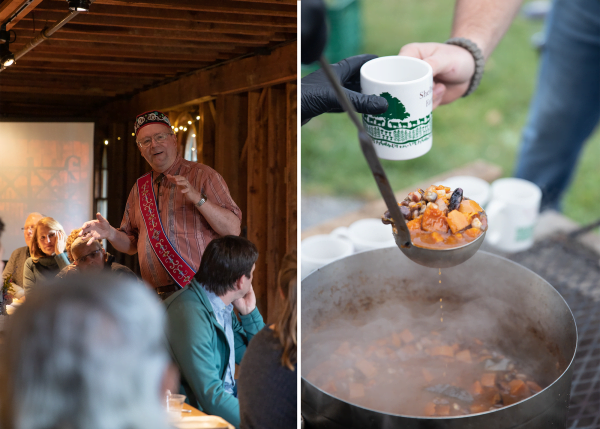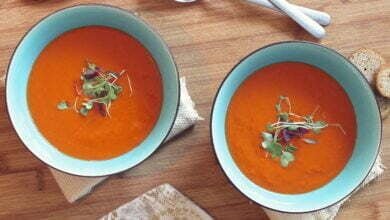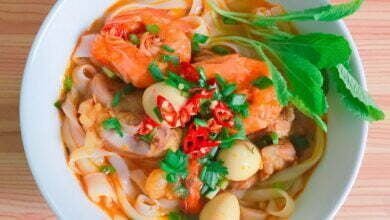
The First Peoples of North America have an intricate and deeply rooted relationship with the land, which is reflected in their diverse and vibrant culinary traditions. Among these, the Abenaki people stand out with their rich heritage, ancient customs, and culinary repertoire that embodies their connection to the natural world. The Abenaki cooking event at the First Peoples Festival serves as an extraordinary platform to delve into this indigenous culinary tradition, offering a profound experience that celebrates their cultural legacy while inviting participants to engage with their ancestral practices.
The Abenaki People: A Glimpse into Their History
Nestled in the Northeastern United States and Eastern Canada, the Abenaki people have an illustrious history that spans centuries. Their deep ties to the land, their vibrant culture, and their resilient spirit have defined their identity for generations. The Abenaki people’s journey has been one of adaptation, resistance, and preservation, and their culinary heritage stands as a testament to their enduring legacy.
Culinary Wisdom Passed Down Through Generations
Abenaki cuisine is deeply rooted in the environment, and it is an exquisite expression of their profound connection with the natural world. Their culinary practices were guided by an intimate understanding of the ecosystems surrounding them, from the lush forests to the winding rivers. This understanding allowed them to craft a culinary tradition that not only sustained their bodies but also celebrated the bounty of the land.
The Abenaki’s diet was diverse and dynamic, adapting to the changing seasons. In the warmer months, they relied on the harvest of wild berries, such as strawberries, blueberries, and raspberries, which were used in a range of dishes, including puddings, preserves, and sauces. As autumn approached, they turned their attention to the bountiful wild game available, such as deer, moose, and smaller animals like rabbits and squirrels. The colder months were marked by ice fishing and reliance on preserved foods like dried meats and stored vegetables.
The First Peoples Festival: A Celebration of Heritage
The First Peoples Festival serves as a vibrant tapestry of indigenous cultures, where traditions, arts, and heritage are interwoven in a celebration that honors the richness of Native American tribes, including the Abenaki. The festival provides an immersive experience, where attendees can witness traditional dance performances, listen to captivating storytelling, explore intricate crafts, and savor the flavors of indigenous cuisines.
Central to the festival is the Abenaki cooking event, where the aromas of traditional dishes waft through the air, beckoning attendees to partake in a cultural journey through taste. Beyond the culinary offerings, the festival is a testament to the enduring vitality of indigenous cultures, showcasing their resilience in the face of challenges and their unbreakable bond with their heritage.
A Journey into Abenaki Cooking
At the heart of the Abenaki cooking event lies a transformative experience that takes participants on a culinary journey into the past. The event is a meticulous recreation of traditional Abenaki dishes, prepared using age-old methods and locally sourced ingredients. Through these dishes, attendees gain insights into the techniques, flavors, and customs that have been passed down through generations.
Succotash: A quintessential dish that embodies the Abenaki’s agricultural prowess and resourcefulness, succotash is a harmony of flavors. A medley of fresh corn, beans, and assorted vegetables are expertly combined to create a dish that mirrors the diversity of the tribe’s diet and the landscape they cherished.
Baked Fish: The Abenaki’s proximity to rivers and lakes made fish a staple in their diet. Baked fish, infused with native herbs and seasonings, is a tribute to their skill in harnessing the elements for sustenance. The smoky aroma and tender texture of the fish pay homage to their culinary ingenuity.
Wild Berry Pudding: Berries held a sacred place in the Abenaki culture, symbolizing both sustenance and spiritual significance. Wildberry pudding, crafted from indigenous berries, is a celebration of the abundance provided by the land. The vibrant colors and sweet flavors speak to their appreciation for nature’s gifts.
Preservation of Heritage Through Food
In a rapidly evolving world, the preservation of cultural heritage is a challenge that Indigenous communities face. The Abenaki cooking event goes beyond the realm of cuisine; it’s a statement about safeguarding traditions. Food acts as a vessel that carries history, stories, and identity. By participating in such events, attendees contribute to the preservation of these traditions, ensuring that they endure for generations to come.
The act of preparing and savoring traditional Abenaki dishes becomes a conduit through which the past and the present converge. In doing so, participants acknowledge the significance of cultural continuity and express their solidarity with Indigenous communities striving to maintain their unique way of life.
Cultural Appropriation and Sensitivity
While celebrating indigenous culinary traditions, it is imperative to address the issue of cultural appropriation. The Abenaki cooking event serves as an opportunity to educate attendees about the importance of respecting and honoring the cultures being celebrated. Sensitivity and understanding are paramount in ensuring that the event promotes cultural exchange rather than exploitation.
The Abenaki cooking event at the First Peoples Festival transcends the boundaries of mere gastronomy; it is a profound tribute to a culture that embodies the essence of the land and its people. Through the dishes, flavors, and stories shared at this event, attendees are granted a glimpse into the Abenaki way of life—a life intricately interwoven with the rhythms of nature, the wisdom of their ancestors, and the resilience of a people who continue to thrive despite the challenges they’ve faced.
This celebration of Abenaki culinary traditions is a call to recognize and honor the Indigenous roots that have shaped the world we inhabit. It serves as a reminder that every bite of food carries with it a narrative of heritage, and every dish is an opportunity to connect with cultures that have left an indelible mark on the tapestry of human history. As attendees partake in this remarkable event, they forge a connection with the Abenaki people, paying homage to their past while creating a legacy of cultural appreciation that spans beyond the festival grounds.



